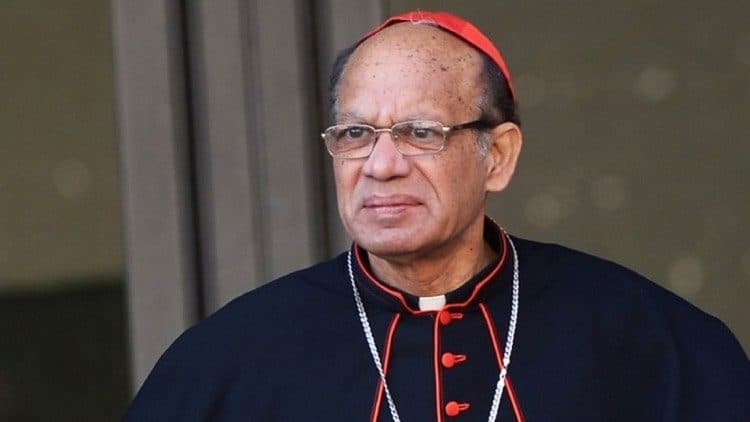MUMBAI – One of Asia’s most senior Catholic leaders, and a key ally of Pope Francis, has insisted that there will be a keen focus on women at the upcoming Synod of Bishops on synodality despite the fact that ordination to the diaconate has been taken off the table in the assembly’s working document.
“We will be discussing a lot about women in this synod,” Cardinal Oswald Gracias of Mumbai, India, told Crux.
“It is very clear that we have to give the rightful place to women,” the 79-year old Gracias said. “There is no doubt about that.”
Gracias, who has led the Church in Mumbai (formerly Bombay) since 2006, also served as the elected president of the Federation of Asian Bishops’ Conferences from 2013 to 2019. Gracias is also one of just two prelates, along with Cardinal Sean O’Malley of Boston, who have been part of Pope Francis’s Council of Cardinal Advisors from the beginning in 2013.
When the Vatican released the working document for the upcoming Oct. 2-27 synod this past Tuesday, technically known as the Instrumentum Laboris, there was concern in some quarters that it avoids any mention of the possibility of ordaining women as deacons.
That omission comes after Pope Francis used an interview with the American network CBS in May to say that such a move is not in the cards. Synod organizers, however, told a July 9 Vatican news conference that the issue will be taken up by the Vatican’s Dicastery for the Doctrine of the Faith as part of a broader slate of study groups devoted to various topics.
In any event, Gracias said, the fact that deacons will not be on the docket for the synod doesn’t mean the women’s issue will be ignored.
“We will discuss ways on how women can have a greater role in the Church, particularly in decision making,” Gracias said in his Crux interview.
The Indian prelate said that part of the challenge with the synodal process, which has ben underway since 2021, is finding solutions which do justice to the global complexity of the Catholic Church.
“We need to keep in mind with a document like this that the Church is universal,” he said. “Our Indian situation, the African situation and the European situation are diverse.”
“We have got to keep the sensitivities of all in mind and also the pastoral needs of all in mind,” said Gracias, who will turn 80 on Christmas eve.
In a similar spirit, Gracias insisted that pastoral outreach to the LGBTQ+ community will not be ignored, despite the fact that the working document appears to downplay the issue, omitting any references to “homosexual,” “orientation,” or “gay.”
“We have spoken of an inclusive Church, which means everybody,” Gracias said. “The pope has been particularly caring about those with disabilities, the marginalized and even people with different sexual orientation.”
Nonetheless, Gracias also warned against expectations of doctrinal changes.
“We don’t reject them as persons,” he said of the LGBTQ+ community. “The danger is that if we make any statement, it might be interpreted by some, as the Church is changing in her moral stance just to be again accepted.”
“Not true,” the Indian prelate said. “The Church is very consistent. The Gospel is very clear of what our Lord wants, the Pope is a man of deep prayer and faith and is leading the Church in the direction of where the Lord and the Holy Spirit wants.”
“The document which has been released is not a teaching [text], but a provocation to think,” Gracias said. “There will be a discussion for four weeks on these different topics in September/October. We will present the conclusions to the Holy Father of everybody – the bishops, the laity, religious, parish priests, etc.”
“Then the Holy Father, with his advisors and consultors, will give his own conclusions,” he said.
Overall, Gracias insisted the synodal process is unfolding according to plan, and said it enjoys a logical connection with the Jubilee Year slated for 2025.
“The synod is going very well,” he said. “I have just returned from Rome about a week back. I had a meeting with the synod council [and] the pope and discussed the program with them,” he said.
“I think we will give hope and will tie up the synod with the Jubilee year. The Jubilee year is meant to give hope to people, to give thanks to God and to plan for the future. The Synod will also give hope to the people and will be planning for the future and thanking God for all the good,” Gracias said.














